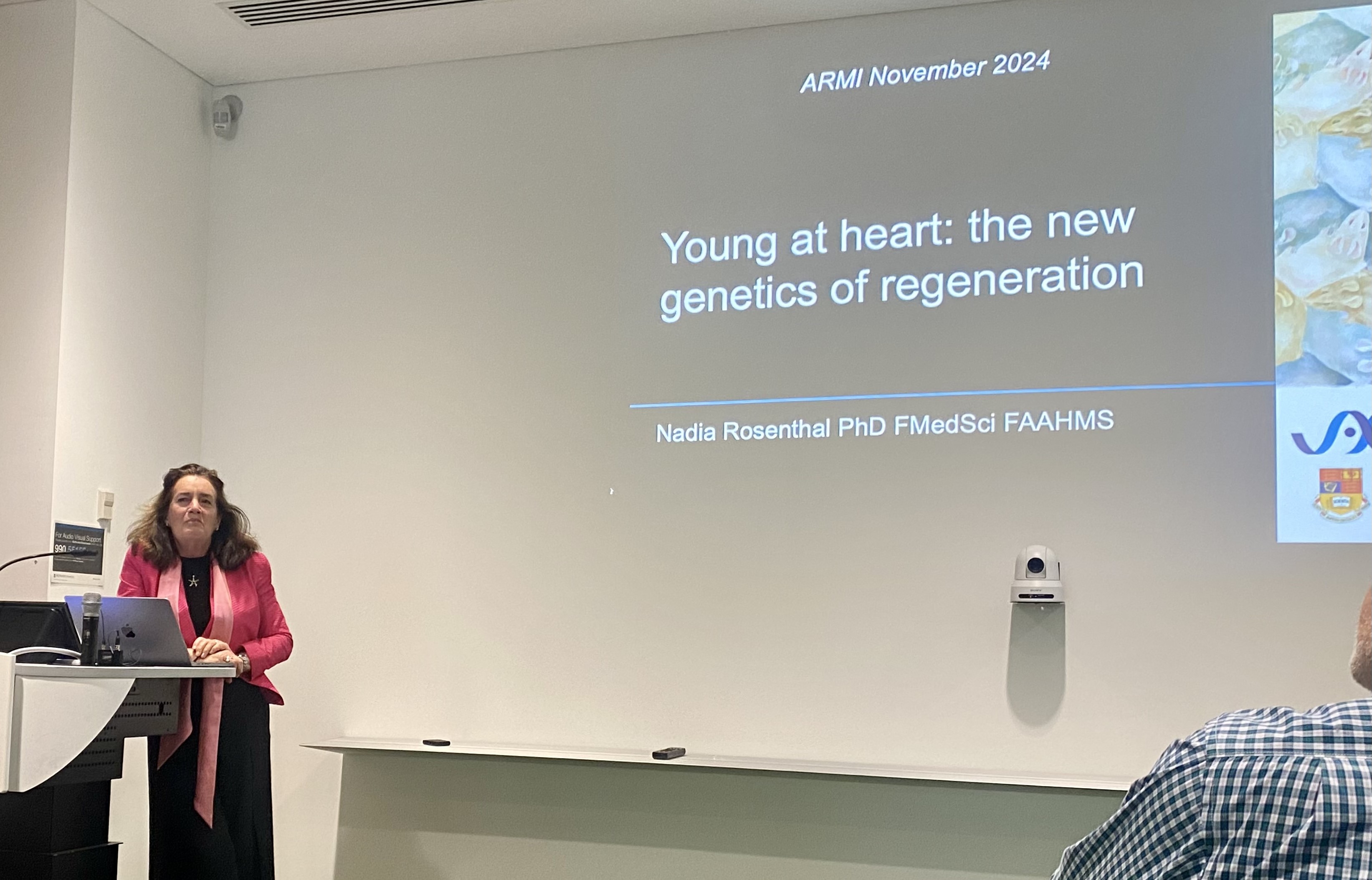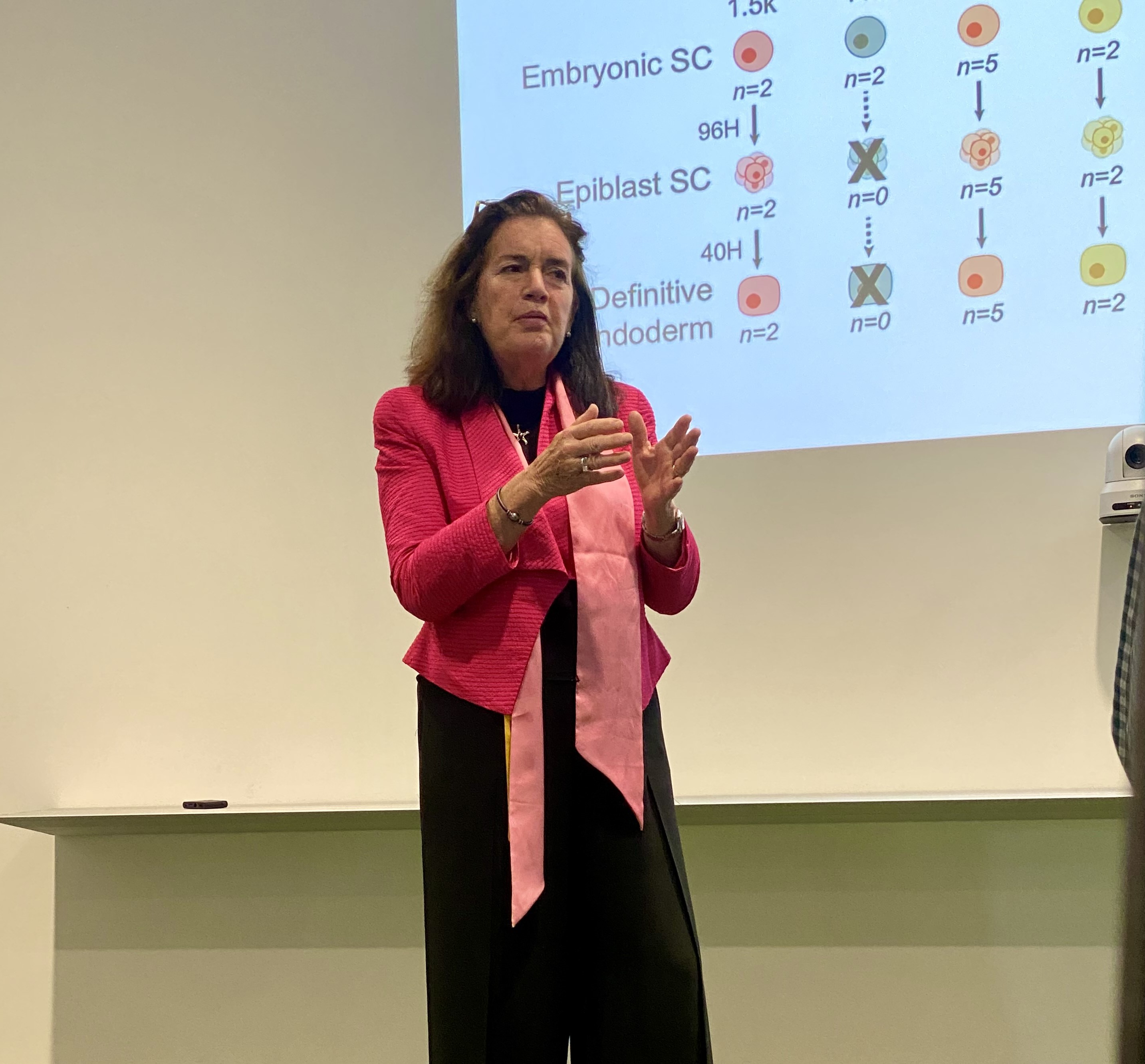Professor Nadia Rosenthal on Key Issues in Regenerative Medicine
The Australian Regenerative Medicine Institute (ARMI) was honoured to welcome back our founding director, Professor Nadia Rosenthal, for an inspiring presentation titled “Forever Young: Unlocking the Science Behind Regenerative Medicine.” The visit marked a celebratory return for Professor Rosenthal, who now serves as the Scientific Director of The Jackson Laboratory in the United States.

Professor Rosenthal’s distinguished career spans continents and has shaped the landscape of regenerative medicine research globally. After earning her PhD from Harvard Medical School, she went on to direct a biomedical research laboratory at her alma mater. Her leadership abilities led her to Europe, where she established and headed the European Molecular Biology Laboratory (EMBL) campus in Rome. Her vision for advancing regenerative medicine research in Australia resulted in the founding of ARMI at Monash University and the establishment of EMBL Australia, where she served as Scientific Head.
Throughout her career, Professor Rosenthal has pioneered innovative approaches to understanding mammalian development, disease, and repair. Her innovative work utilizing complex mouse genetic diversity panels has advanced our understanding of cardiovascular and skeletal muscle biology. Her research has illuminated crucial connections between growth factors, stem cells, and the immune system in tissue healing following injury.
Professor Rosenthal’s contributions to the field are reflected in her numerous accolades and appointments. She is a member of EMBO, a Fellow of both the UK Academy of Medical Sciences and the Australian Academy of Health and Medical Science, and holds the prestigious Maxine Groffsky Endowed Chair at The Jackson Laboratory. She also maintains strong ties with Imperial College London as Chair in Cardiovascular Science.
In her seminar, Professor Rosenthal presented recent advances in tissue regeneration and translational research. She discussed how tissue-specific fibroblasts and macrophages play crucial roles in regeneration, noting that fibroblasts possess unique transcriptional profiles linked to developmental processes. Second, she emphasized the need to move beyond traditional mouse strains in research, advocating for more genetically diverse mouse models to better mirror human disease variability and improve clinical relevance. Finally, she stressed the importance of combining developmental biology with regenerative medicine to enhance therapeutic strategies. Throughout the seminar, Professor Rosenthal demonstrated how understanding cellular diversity and improving research models could advance regenerative medicine applications.

The meet and greet following her presentation provided an invaluable opportunity for current ARMI researchers to connect with one of the field’s most distinguished leaders.
We thank Professor Rosenthal for delivering this engaging seminar, and for her continuing leadership in the regenerative medicine field.
